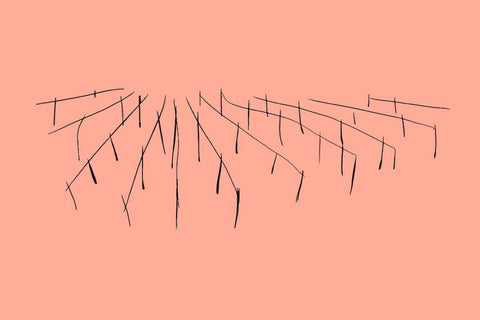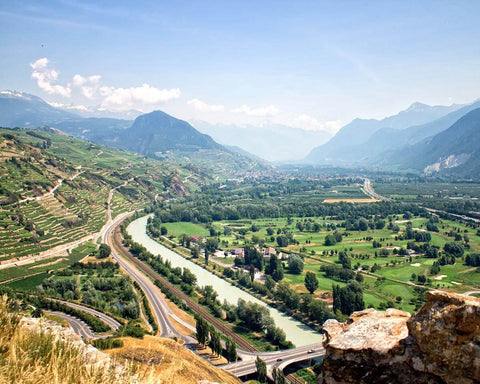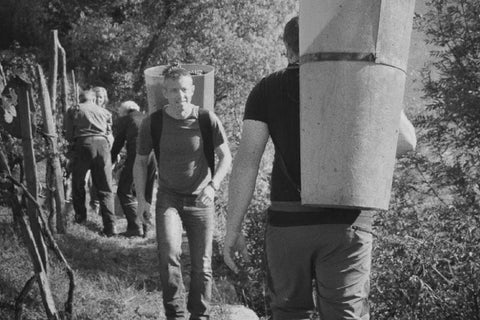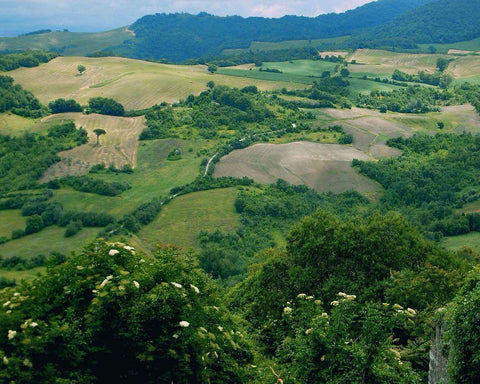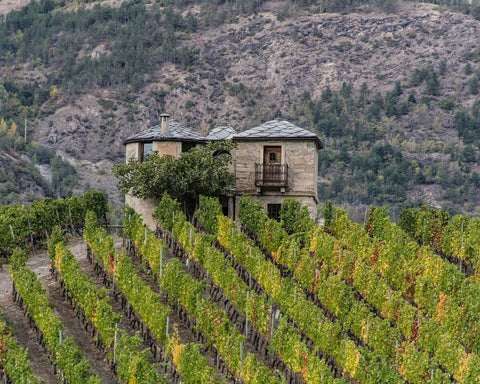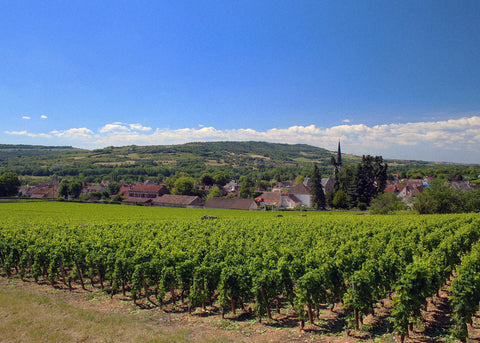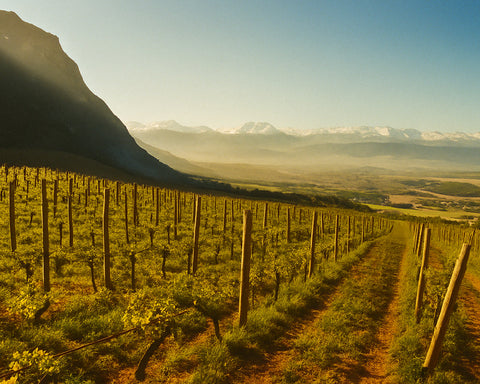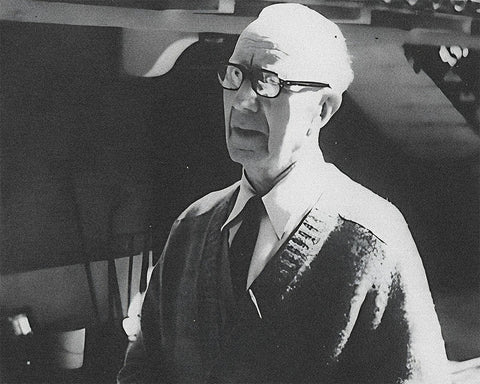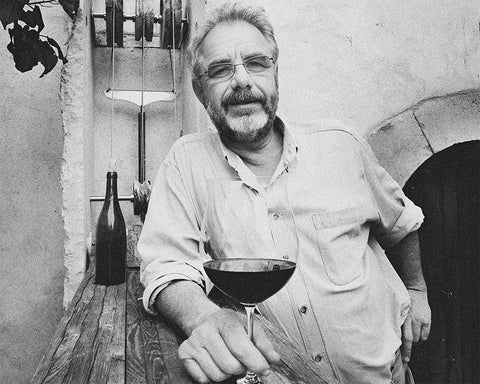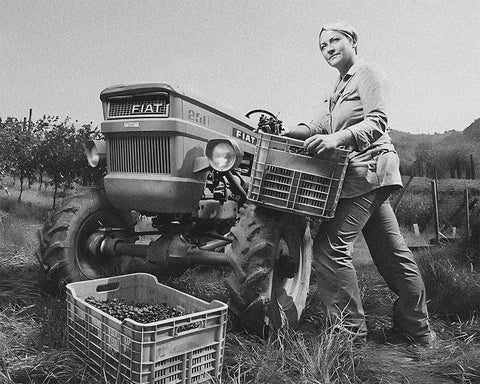Terroir is the favorite word of winemakers, vignerons, sommeliers, and wine lovers. It's used in various contexts and sometimes with shifting meaning. But what does terroir actually mean? And more importantly, what is the role of terroir for the quality of a wine?
A Definition of Terroir
The word terroir, etymologically stemming from the latin word 'terratorium', which means land - extended meaning earth and soil - emphasizes the physical characteristics of a specific place. Terroir, on a very basic level, in the context of winemaking refers to the qualities of a place where grapes are grown.
The English Oxford Dictionaries defines terroir as:
1. The complete natural environment in which a particular wine is produced, including factors such as the soil, topography, and climate.
1.1 The characteristic taste and flavor imparted to a wine by the environment in which it is produced
Natural factors such as bedrock, soil, irrigation, altitude, latitude, climate, flora, fauna, and microbial communities all make the grapes behave and taste as they do in a certain place at a certain time, giving a wine its unique flavor.
Grapes 'read' and 'interpret' the land they derive from, so in a sense, we can say that when we drink a wine we indirectly drink the soil and the climate of a place. But in addition to these physical factors, terroir also embeds culture and tradition; how winemaking and viticultural practices have had an impact on a particular piece of the Earth through time. Hence terroir, among Anglophones, is often referred to as the "sense of place".
The dictionary's definition the “environment in which it is produced” should, therefore, be read not only as the natural environment but also as the human impact on the environment: people have adapted over the centuries shaping and molding their surroundings. This human element is an integral part of what constitutes terroir, a complex and multidimensional concept impossible to limit it to one simple definition.
As Ian Tattersall and Rob De Salle put it in the very worthwhile reading book A Natural History of Wine (2015): "So much happens between planting a vine, and drinking its product, that separating out the influence of any one of the factors involved along the line is next to impossible”.
Terroir and Wine: What Relation?
So what is the exact role of terroir for the quality of a wine? This question has a twofold answer - let's take the example of Bordeaux and Burgundy, two of the most famous wine producing regions in the world.
The first aspect of terroir is the intrinsic geological and climatic characteristics of a place. Some of the most prestigious vineyards in the world, like those in the Médoc area of Bordeaux region, benefit from a set of extraordinary physical qualities especially beneficial for grape vine growing - for example drainage and soil composition. Grapes grown in Bordeaux give wines that are considered among the best in the world.
Climatic and geological characteristics are reflected directly in the wines produced, which can vary considerably depending on the exact parcel, or cru, where grapes are grown. In a way, the concept of terroir comes to life when examining different wines made from different parcels each one with its own personality.
In other words, terroir doesn't exist in a vacuum: to fully understand it we must explore a wine area's unique multiplicity of terroirs. The terroir of Médoc can be understood only in relation, for example, to the terroir of Graves - another sub-region within the broader Bordeaux area.
The second aspect of terroir, in addition to geology and climate, is the local culture - not only the winemaking culture but also local folklore. In Burgundy, one of the wine-growing regions where the concept of terroir has been central for a long time, the idea of the 'génie bourguignon' (the Burgundian spirit) is also a key component of terroir.
The 'génie bourguignon', a vision of a spirit belonging to a certain location, has been part of Burgundy's local folklore for centuries and played a major role in shaping the interaction between the environment and its inhabitants. This view of terroir is adding another layer to the concept, a philosophical connotation, the 'genius loci', the spirit of a place.
This spiritual component could be dismissed either as an overly romantic view of terroir, as a product of superstition or even as a marketing gimmick. But at a closer look, its results are clearly visible in the final product. There are in fact specific empirical reasons why viticulturists and winemakers, through a century-long trial and error process, have chosen certain parcels of land or certain winemaking practices over others.
If a particular place has been and is considered to almost have magical characteristics due to some folkloristic spiritual being, it's probably because over the centuries farmers found it somewhat special for grape growing. The spiritual layer can be seen as secondary to the fact that a parcel is ideal for grape growing, but in reality, it plays an important role in shaping how people conceive of and interact with the environment.
The wines produced are therefore an expression not only of intrinsic geological and climatic factors but also of how men interpreted and understood such factors over the course of centuries - seen through the lens of local folklore and traditional culture. Hence, farming and winemaking practices, more generally life in the vineyard, are informed not only by deterministic and scientific elements but also by the spirit of a place.
Industrial Wine v. Terroir-driven Wine
On the opposite end of the spectrum, large-scale industrial wine is often modified to the degree that the characteristics of a specific terroir do not shine through anymore. Industrial wines are more akin to homogeneous soulless coca-cola wines: highly manipulated, over-oaked wines where sugar levels have been adjusted artificially. These wines could just as well be from South Africa, California or Bordeaux. The flavor profile of industrial wines has little left of the wines true identity - its terroir.
In a globalized world, many wine consumers increasingly look for originality and authenticity in their products: they want to be able to increase their wine vocabulary. This is where alternative winemaking approaches - alternative to mainstream industrial winemaking - come into the picture: they are a response to the increasing uniformity of wines.
The concept of terroir wines or terroir-driven wines as a contrast to industrial wines refers to wines in which the origin can be detected and recognized down to the exact parcel within a broader wine region. The focus for terroir wines is the care for the land, the expression of the soil, the "taste of place" or "sense of place", achieved through minimal intervention both in the vineyard and the cellar.
Terroir wines are not always natural wines, but natural winemakers share the same attempt to express the originality and authenticity in their wines.
A key aspect of terroir-driven wines is unpredictability. Terroir-driven wines can taste different every year, depending on climatic differences of each vintage, even more so if they are made naturally from organic or biodynamic grapes. This is relevant due to the ever-increasing influence of climate change, particularly evident on viticulture.
Whereas in much conventional winemaking a more or less standardized taste profile aimed at satisfying the expectations of the customers is the goal for each vintage, for alternative winemakers, unpredictability is seen as a quality. In some extreme cases of exceptionally bad vintages, no wine is released for that vintage.
This does not mean that all terroir-driven natural wines are always good or even expressive of their origin - with less human intervention the risk of problems such as volatile acidity in wines can increase. But if a highly professional approach in the vineyards and the winery is applied, they are truly unique and unforgettable wines.
Terroir-driven wines might not be your first choice if you prefer wines that taste more or less the same year after year or bottle after bottle. But if you are adventurous and like to step out of your comfort zone, terroir wines are definitely worth a try. On Primal Wine we proudly feature terroir-driven natural wines from dedicated small producers.
Author: Sara Nässén ©
